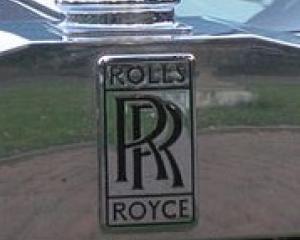A warning to the Otago District Health Board about Michael Swann's extravagant lifestyle was not "ignored", chairman Richard Thomson yesterday confirmed.
A tip-off in early 2006 prompted the investigation which led to his eventual conviction on fraud charges totalling $16.9 million. Mr Thomson contacted the Otago Daily Times yesterday concerned about the growing number of reports about when the board acted on information about Swann's increasingly high-profile lifestyle.
He said concerns were raised with him by an individual - who requested anonymity - about Swann's extravagant spending in "early 2006".
"This was not an ignored warning. That's the point at which we decided to go ahead and investigate," Mr Thomson said.
The informant's information, based on discussions with two unidentified "prominent" Dunedin business people, is understood to have been delivered about the time of, but separately, from former Dunedin mayor Sir Clifford Skeggs' raising of informal concerns about Swann's spending.
An earlier warning letter describing Swann as "dishonest" and "having criminal intent" was delivered to chairman Ross Black in July 1998.
Mr Black said on Sunday he immediately acted on the letter, handing it to the board's acting chief executive for investigation.
Legal advice was that the board could not use unsubstantiated and unproven allegations to review a person's employment. Mr Thomson yesterday also confirmed neither he nor current chief executive Brian Rousseau were briefed on the letter's existence until eight years later.
It was not until the informant's verbal tip-off was received that the ODHB inquiries began, Mr Thomson said.
"I immediately went across the road and met with the CEO [Brian Rousseau]. Investigations into him [Swann] were immediately commenced. Initially, we didn't turn up anything," he said.
Mr Rousseau asked Arlee Folkes, the ODHB's chief financial officer from 2002 until early 2006, to undertake an investigation into Swann, Mr Thomson said.
"She didn't turn up anything and was replaced by Robert [Mackway-Jones]. He turned up the issues around the [Sonnford] contracts and it snowballed from there," Mr Thomson said.
Ms Folkes' evidence during the three-week trial of Swann and business associate Kerry Harford included that, because payments had been made for several years before she was appointed to her position, she assumed senior management would have verified the Sonnford invoices in question, and also assumed that either auditors or members of her staff may have checked the validity of the 16 Sonnford contracts.
Documents obtained by the ODT this week include one entitled "Project - Sink the Bismark", dated August 2006, which outlines what appears to be one of the first in-house ODHB briefings on initial inquiries: looking for a company called Sonnford, addresses of Swann-related assets in Dunedin, comparisons of computer systems and other local business interests of Swann's.
Sonnford Solutions Ltd was the principal company used by Swann and Harford to receive the bulk of the $16.9 million for which they were last Friday found guilty of defrauding the ODHB.
Mr Thomson said yesterday he was unaware of a project called Sink the Bismark.
He believed the board's investigation was several months under way by August.
"Around about then we would have been pretty sure we had something," he said.
Swann was sacked in early October 2006 and served with civil court charges by the ODHB on October 27, which were then overtaken in May last year by Serious Fraud Office criminal charges.
Advertisement




